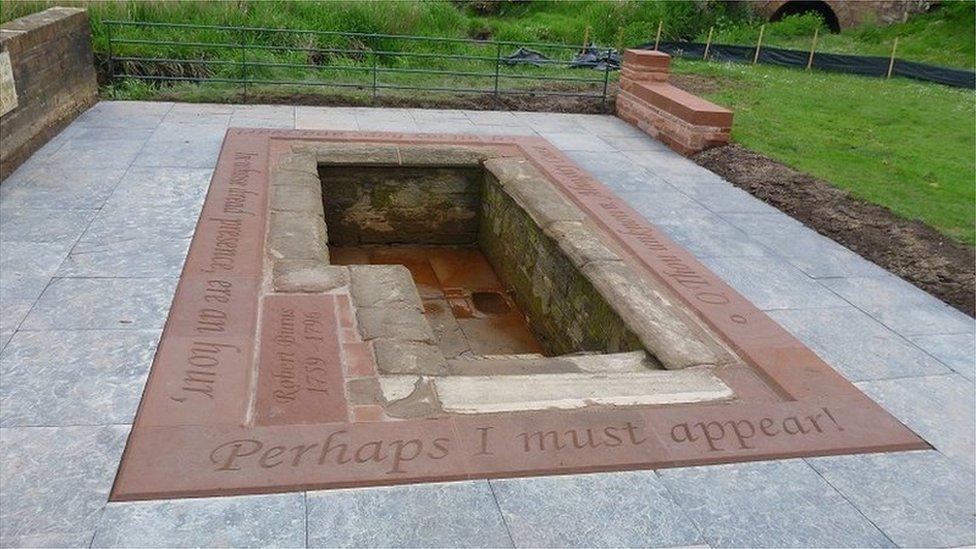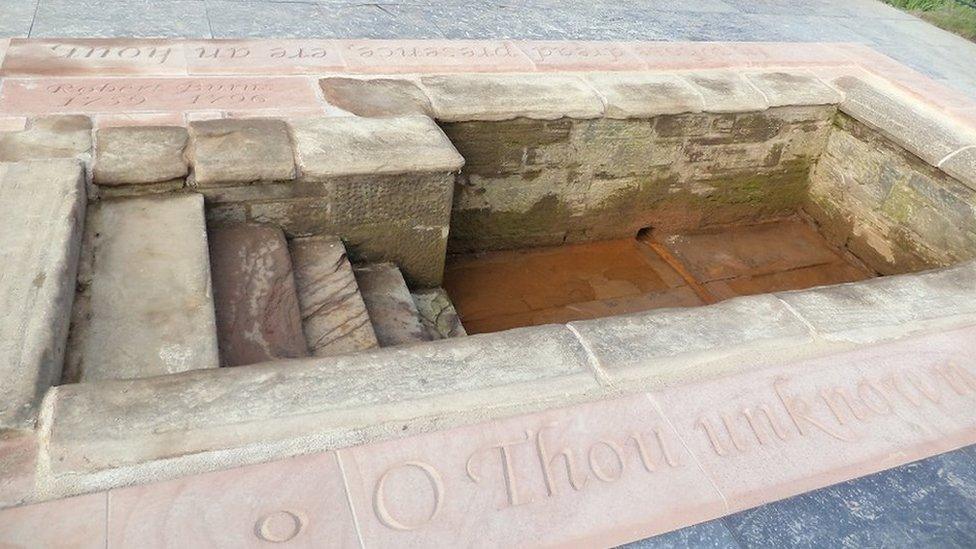Robert Burns' bathing spot 'transformed' ahead of death anniversary
- Published

The site has been improved ahead of the anniversary of Robert Burns' death
A spot where Robert Burns bathed and drank the waters shortly before he died has been "transformed" ahead of the anniversary of his death.
A commemorative service will take place at the renovated Brow Well near Ruthwell on 20 July.
In the 1700s the site was renowned for its healing qualities with residents of Dumfries regularly "taking the waters".
Burns himself visited in 1796 but it failed to improve his condition and he died in July that year.
The Dumfries and Galloway site remains a popular spot for fans of the poet's work to visit.

The waters of the well were renowned for their healing qualities in the 1700s
Last year the Solway Firth Partnership set up a steering group to lead the initiative to improve the site and preserve the story of this piece of Burns' history.
It has resulted in a new surround for the well engraved with poetry, a new path and interpretation panel.
The project was funded by Solway Heritage, The Landfill Communities Fund, through Solway Heritage and Dumfries and Galloway Council, along with contributions from many Burns Clubs and volunteers.
'Important site'
Colin Mitchell, who chairs Solway Heritage, said: "The Brow Well is an important site locally and nationally.
"It sits on the Solway Coast Heritage Trail and features on the Burns Heritage Trail.
"Solway Heritage is delighted to have been able to fund this improvement project which clearly embraces the built, cultural and natural heritage within one location."
As part of the improvement works, the path from the Brow Well to Ruthwell has also been upgraded for walkers by Dumfries and Galloway Council.

Improved access has been part of the upgrade works at the Brow Well
Solway Firth Partnership Manager Clair McFarlan said: "We are really grateful to all the funders and everyone else who has contributed to the improvements at the Brow Well.
"And we hope that local residents and visitors alike will enjoy this special historic site for many years to come.
"Just don't drink the water."
Southern Scottish Counties Burns Association President Mike Duguid said the annual service at the Brow Well was held in "very high esteem" by admirers of the poet.
"It offers them the opportunity to reflect on the fact that he died so young and yet left behind such a magnificent legacy of poems and songs which have helped define Scotland's place in the world," he said.